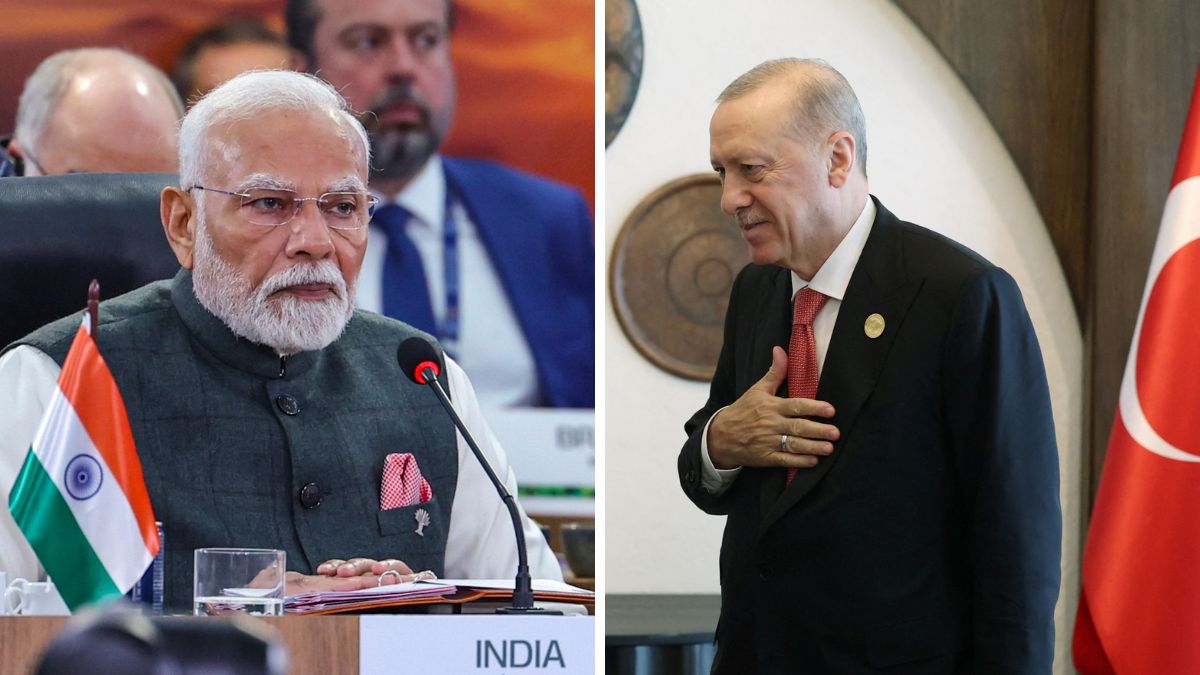Anti-India stance proves costly; over 85,000 Indian tourists ditch Erdogan’s Turkey
 Prime Minister Narendra Modi at BRICS Summit. (Right) Turkey President Recep Tayyip Erdoğan | Reuters
Prime Minister Narendra Modi at BRICS Summit. (Right) Turkey President Recep Tayyip Erdoğan | Reuters
Turkey is facing a significant loss after figures from the country’s tourism sector showed a huge fall in the number of Indian tourists visiting the country. Over 85,000 fewer Indians visited Turkey’s tourist spots in 2025, compared to the previous year, as per reports.
The shocking statistics came within 45 days of Turkey’s tourist season, which began on June 1, according to Turkish newspaper Alanya Postasi.
In 2024, 3,30,000 Indians visited Turkey. They spent an average of Rs 1,30,000, which earned Turkey a total of Rs 42.9 billion. However, post the war and Turkey’s anti-India stance, Indian arrivals dropped nearly 24% in May compared to April.
Reservations made in advance, especially during the winter months, are being canceled en masse. This has resulted in a significant loss in Turkey’s tourism revenue and highlighted the necessity for alternative markets, the reports added.
Interestingly, the report highlighted India’s “smear campaign” against Turkey for the trend, rather than citing its President Recep Tayyip Erdogan’s anti-India stance for the development. Tourism sector representatives hope that these developments are temporary, but they called on the stakeholders to monitor the impact of regional policies on tourism in the long term.
Turkey was also a favourite wedding destination for Indians, thanks to the mega promotions carried out by Turkish promoters over the last decade. “India has a significant share of the wedding market in Turkey. Weddings used to cost between $70 million and $150 million," Tourism professional Hamit Kuk was quoted by a local newspaper when the cancellations began in May.
Though Turkey continues to witness strong tourist interest from other countries in the region, the impact of India’s loss is significant. In addition to Pakistan, there is an increase in the number of visitors from China, Japan, and Taiwan, Turkish tourism sources said.
Middle East